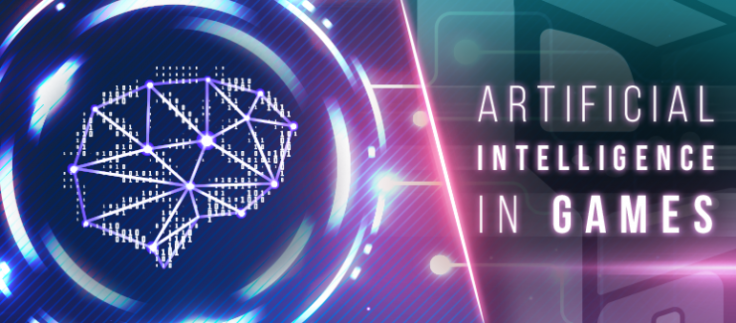When Google revealed Project Gameface, it was delighted to show off a hands-free, AI-powered gaming mouse which, according to the announcement, "enables people to control a computer's cursor using their head movement and facial gestures."
While not the first AI-based gaming tool, it was one of the first to put AI in the hands of gamers rather than developers. AI has the ability to push game experiences to new heights, making them more immersive, difficult, and fascinating than ever before. AI has the potential to alter gaming and make it more engaging for gamers all around the world, from procedural generation to intelligent NPCs and adaptive gameplay.

One of the most intriguing aspects of AI in gaming is procedural generation. By leveraging AI techniques, developers can create dynamic environments that are unique for each player, ensuring that no two gaming sessions are the same. Procedural generation allows for infinite possibilities, fostering exploration and discovery in gaming. Players can embark on endless adventures in ever-changing worlds, ensuring a fresh and exciting experience every time they play.
AI-powered NPCs (Non-Player Characters) have the potential to revolutionize game storytelling. Instead of being static and predictable, AI may give NPCs life by imbuing them with intelligent behaviours and realistic responses to player activities. NPCs can learn from player interactions, adapt to new settings, and even develop their own personalities.AI may make NPCs show emotions, making their reactions more human-like and providing more immersive gameplay. Consider conversing with an NPC who understands and responds to your emotions, making the game experience more personalised and engaging. These clever NPCs can challenge players and provide a variety of options.
AI systems can analyse and alter games based on player behaviour, learning patterns, and skill levels. This adaptive gameplay guarantees that players are challenged at the appropriate level on a constant basis, eliminating irritation from unduly difficult tasks or boredom from simple ones. AI can dynamically alter the game's difficulty, enemy AI behaviour, and puzzle complexity using machine learning techniques, offering a personalised experience for each player. This method keeps players engaged and motivated by constantly challenging them to better their skills and overcome new problems. The ability of artificial intelligence to customise the gaming experience to individual players guarantees that games stay exciting and engaging for gamers of all skill levels.
AI-powered assistants can provide gamers with real-time assistance, boosting their overall gaming experience. When players are stuck or struggling with a level or assignment, these assistants can analyse gameplay data and offer suggestions, tips, and hints. This function eliminates the need for external walkthroughs or instructions, allowing players to remain engrossed in the game. In addition, AI can track and analyse player behaviour to discover preferences, allowing for personalised recommendations. AI algorithms can recommend new games, genres, or even in-game features based on a player's likes and dislikes, broadening their gaming horizons and introducing them to interesting new experiences.
Artificial intelligence has expanded the gaming industry's potential. AI has the potential to make gaming more intriguing and captivating, from procedural generation that generates unlimited and different game environments to intelligent NPCs who allow immersive interactions. AI guarantees that players are continually challenged and engaged, suited to their specific talents and preferences, through adaptive gameplay and real-time help.









